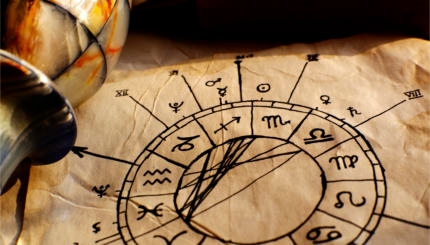A curse is a verbal invocation pronounced to bring harm, evil, or detriment to another. More than a threat or a wish, a curse is assumed to have the power to make the desired harm a reality.
Two elements make up the logic of cursing: a magical/symbolic view of causality, and “formalism”–the belief that a speech-act has power, regardless of intention, justification, or authority. While some assume that the “power” of the speaker underpins the efficacy of the curse (Numbers 22:3), because of formalist assumptions in rabbinic thinking, even curses uttered unintentionally by ordinary people were believed to have the potential to be detrimental (Megillah 15a-b, 28a).
In the Bible
“The skies above your head shall be copper, and the earth under you iron.” Deuteronomy 28:23
In the Bible, God has the power to both bless and curse Creation. Both powers are demonstrated in the first three chapters of Genesis. Humans also have the power to curse individuals and whole classes of people. Some biblical authors simultaneously try to limit the use of curses and undermine their formalist assumptions by claiming unjustified curses will have no effect (Proverbs 26:2).
Biblical curses can be absolute or conditional. An absolute curse is meant to be immediate (Genesis 4:11; II Samuel 16). A conditional curse only becomes efficacious when certain conditions are met or violated (Deuteronomy 27-28).

Help us keep Jewish knowledge accessible to millions of people around the world.
Your donation to My Jewish Learning fuels endless journeys of Jewish discovery. With your help, My Jewish Learning can continue to provide nonstop opportunities for learning, connection and growth.
A notable form of conditional curse that appears in the Bible is the conditional self-curse (I Kings 19:2, 20:10). Often included in an oath, this curse was placed on oneself accompanied with a symbolic act of destruction–shattering a pot, chopping up an animal, or some other deed that signified what would happen to the one making the vow if he or she should fail. Even God uses a form of this when making a covenant with Abraham (Genesis 15:7-21).
In Rabbinic Literature
The Sages elaborate upon these biblical beliefs (Makkot 11a; Eruvin 18b-19a; Terumah 3b-4a; Makkot 16a). Demons as well as human beings can utter curses. Using a curse can actually invite unwanted demonic attention on the person uttering the curse. The talmudic sage Rav reportedly had the power to curse others with sterility (Shabbat 108a).
At least one sage, Joshua ben Levi, had the power to curse crops. In the Jerusalem Talmud, Tractate Hagigah, we read that the curse of Simeon ben Shetah’s son was considered so potent that eighty witnesses recanted their perjury rather than see his curse realized.
Post-Talmudic Texts
In Hebrew magical texts of late antiquity, several aggressive or “binding” spells are to be found. Most are aimed at demons, but a few are directed against other human beings. Texts such as Sefer ha-Razim and Sword of Moses, which have moved beyond the constraints of rabbinic prohibitions, are the most flagrant in the kind of curses they record.
Sefer ha-Razim, for example, teaches that the “angels of Himah” (wrath) that occupy the second camp of the first level of heaven will carry out a variety of curses at the command of the properly prepared adept: they will inflict “combat and war and are ready to torment and torture a man to death.” Specific curse formulae include capsizing a boat, collapsing a wall, sending someone into exile, breaking bones, blinding and/or laming, even undermining business dealings.
Medievals believed that even reading those portions of the that recount God’s curses against disobedient Israel (Deuteronomy 27-28) could result in those curses being realized, so those portions were read rapidly in a whisper, a custom still observed today in many congregations.
The exact mechanism of cursing varies. As noted above, a curse can follow simply because of an utterance. Jewish magical texts, however, generally require more effort. Sefer ha-Razim, aping Greek pagan magical practices, requires materia magica along with specific rituals and incantations. Timing and astrological influences can also increase or mitigate the power of a curse.
The practice of cursing is still with us. In a much publicized event during the 1994 Israeli elections, a Kabbalist put a pulsa denura (lashes of fire) curse on candidate Rabin because he supported territorial compromise with the Palestinians.
Reprinted with permission from the Encyclopedia of Magic, Myth, and Mysticism (Llewellyn Worldwide).


